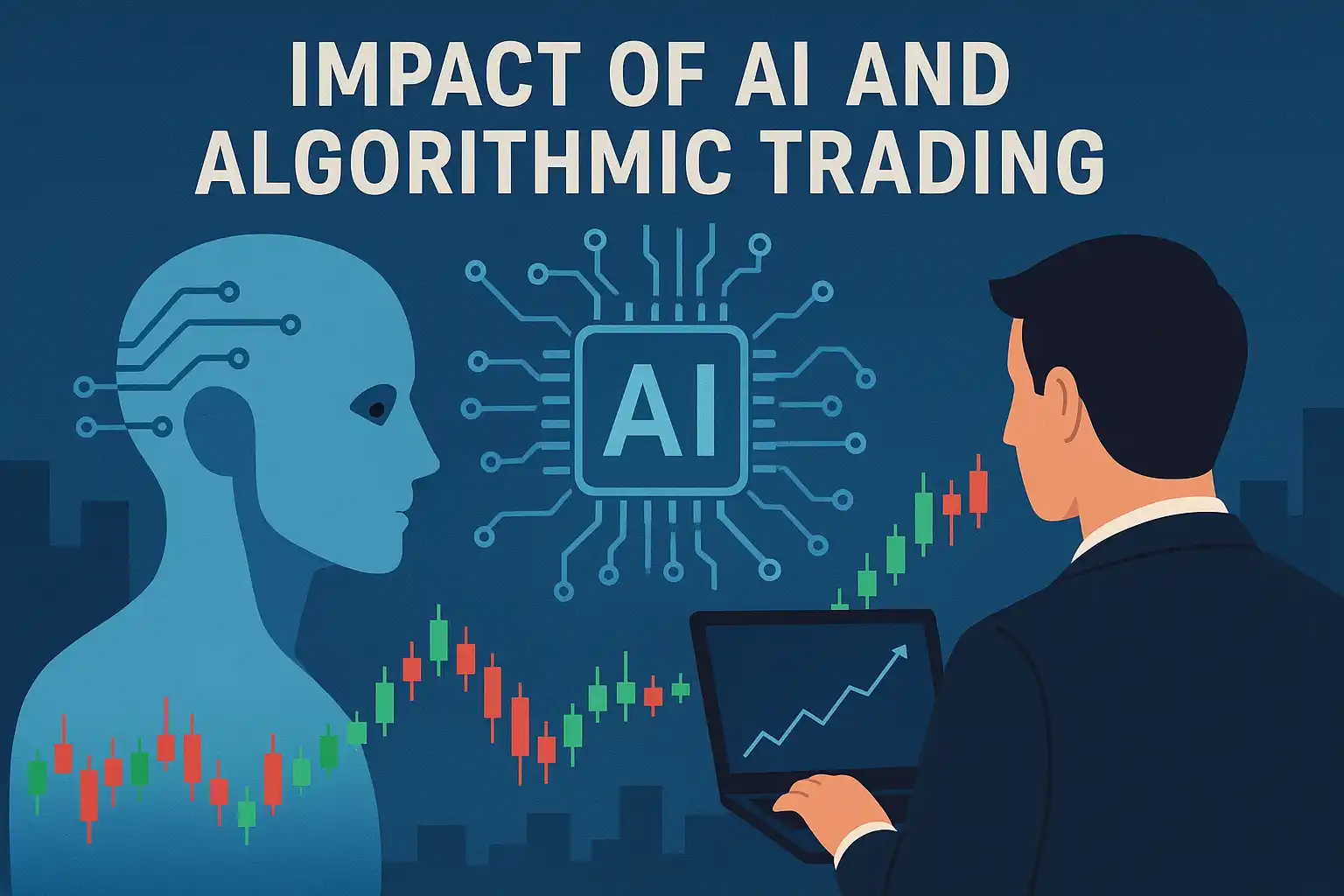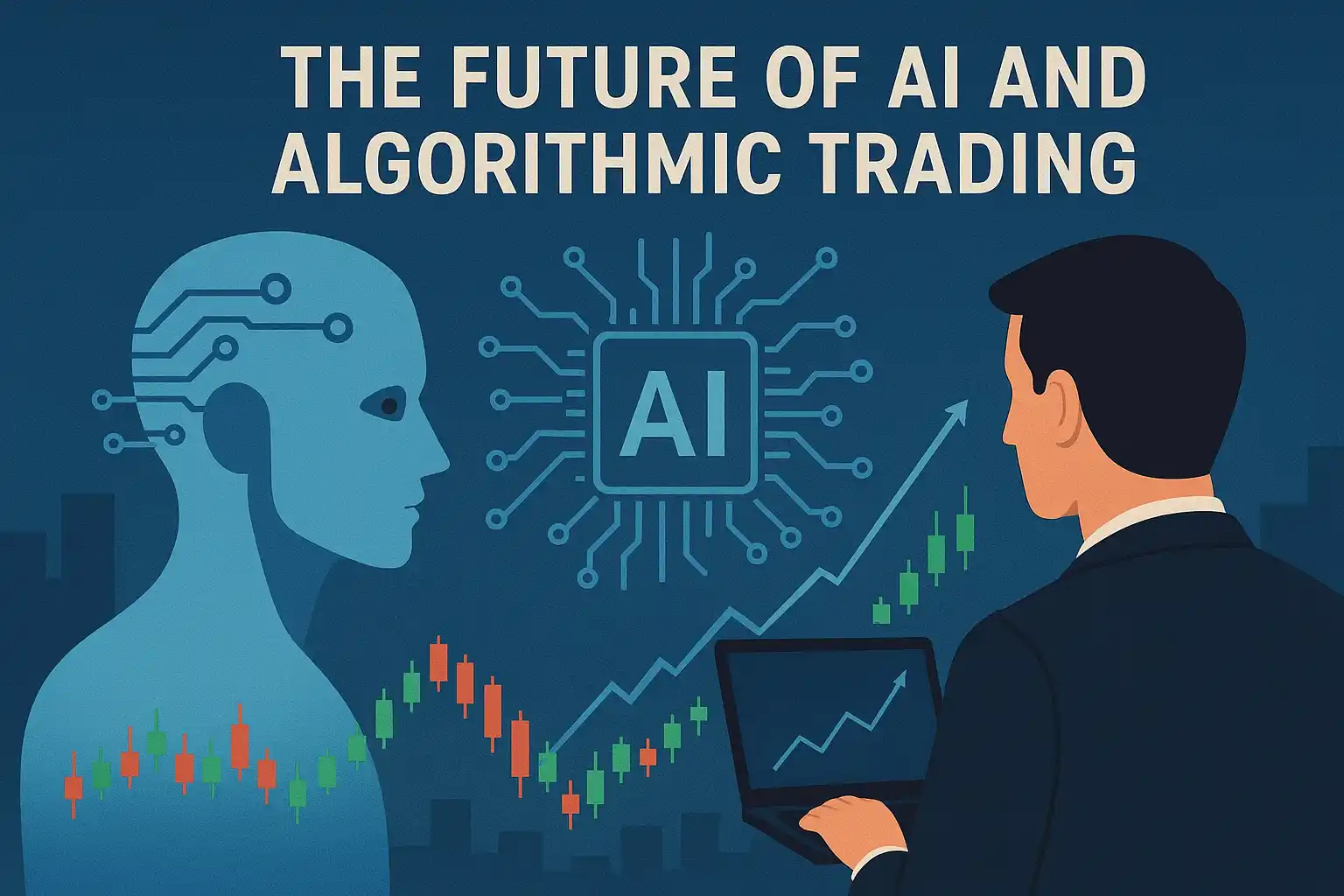Crash-Proof EA Templates You Can Use in 2026
Automated trading carries risks, but crash-proof EA templates protect capital and limit losses. These templates...

Artificial intelligence (AI) and algorithmic trading are reshaping financial markets at a rapid pace. What started as simple trading algorithms has now evolved into complex AI-driven systems capable of analyzing huge amounts of data, spotting trends, and executing trades in milliseconds. This technological transformation brings both opportunities and risks for traders, brokers, and institutions. Understanding the impact of AI in algorithmic trading is important for anyone who wants to stay ahead in today’s financial world.
Algorithmic trading refers to using computer programs to place trades based on predefined rules and market data. AI enhances this process by applying machine learning and advanced data analysis. Unlike traditional algorithms that follow fixed logic, AI systems can adapt, learn from new patterns, and adjust trading decisions over time. This makes AI-powered trading more flexible and responsive to market conditions. According to Investopedia, AI is now being used in investment strategies to boost efficiency, reduce human error, and improve overall performance.
AI-driven trading systems offer many advantages. They provide faster data analysis, which allows traders to react to market signals instantly. This speed improves market liquidity and makes pricing more efficient. AI also helps reduce emotional trading errors by relying on logic and data rather than human impulses. For institutions, AI can handle massive trading volumes without performance issues, making it an essential tool for hedge funds, banks, and professional trading firms. Retail traders can also benefit by using AI-based tools such as forex Expert Advisors available in gregforex.com’s Expert Advisors category.
While AI brings efficiency, it also introduces risks. One of the biggest concerns is market volatility. AI systems can react simultaneously to the same signals, which sometimes triggers large price swings and liquidity gaps. Reuters reported that while AI can improve market efficiency, it may also create sudden instability. Another risk is algorithmic collusion. Research has shown that AI trading bots can unintentionally collude, leading to unfair market manipulation. Tom’s Hardware explains how “artificial intelligence” combined with “artificial stupidity” can cause automated traders to cooperate in ways humans might not even notice.
The use of AI in markets raises ethical questions. Institutions with access to advanced AI gain a major advantage over retail traders. This inequality can widen the gap between professional and individual investors. Another issue is the “black-box” nature of AI. Since these systems are complex, even their creators may not fully understand why certain trades happen. This lack of transparency makes regulation difficult. Sudden “flash crashes” caused by automated systems are another concern. For example, in 2010, an algorithm-driven crash wiped out nearly $1 trillion in market value within minutes, reminding us of the risks of automation.
Retail traders often worry about competing with AI systems. However, the truth is that AI is also available at the retail level in the form of automated trading bots, forex indicators, and Expert Advisors. For example, traders using Forex Indicators can combine them with AI tools to make better trading decisions. Blogs like Best Forex Expert Advisor 2025 provide insights into how retail traders can choose reliable EAs to stay competitive in the AI-driven market.
Despite the benefits, many investors remain cautious about relying on AI. This hesitation is known as “algorithm aversion.” Even if AI predictions are more accurate, people may prefer human input when money is involved. According to FT, trust remains a big challenge. Retail traders may feel uneasy about giving full control to machines, which is why semi-automated systems—where AI provides signals and traders make the final decision—are becoming popular. A useful resource for building confidence in trading tools is the Top Forex Trading Tools guide.
Traders can reduce risks by using proper risk management strategies. Limit orders, diversification, and low-cost instruments help minimize losses. As Investopedia explains, controlling costs and monitoring AI systems closely can protect traders from unexpected results. Regulators are also working on frameworks to ensure fair and safe use of AI. For retail traders, choosing reliable platforms and products is important. For example, those learning to manage risks can start with Forex Courses to gain deeper knowledge of how AI works in trading.

The future of AI in algorithmic trading looks promising but complex. Institutions will continue to invest heavily in AI, pushing technology further. Retail adoption will rise as more affordable AI tools become available. Regulation will likely play a bigger role to prevent unfair practices and systemic risks. As AI systems become more advanced, they could change how markets function at a fundamental level. Traders who adapt early by combining knowledge, strategy, and AI-powered tools will have an edge in this new landscape.
What is the main impact of AI in trading?
AI makes trading faster, more accurate, and more efficient, but it also increases risks of volatility and market manipulation.
Can AI trading bots collude without humans?
Yes, studies show that AI systems may unintentionally collude, leading to pricing issues even without direct human involvement.
Is algorithmic trading only for institutions?
No, retail traders can also use AI-based trading bots, indicators, and Expert Advisors to compete in the market.
What risks should traders watch out for?
Main risks include flash crashes, over-reliance on automation, lack of transparency, and increased volatility.
How can traders manage risks when using AI?
By setting clear limits, diversifying investments, using trusted products, and staying updated with regulatory changes.
AI and algorithmic trading are transforming financial markets with speed, efficiency, and new opportunities. At the same time, they bring risks such as volatility, collusion, and ethical challenges. For traders, the key is balance—leveraging AI for its strengths while applying smart risk management. By combining reliable trading tools from categories like Expert Advisors, Indicators, and Forex Courses, retail traders can stay competitive in the AI-driven market. External insights from trusted sources like Investopedia and Reuters show that while AI is powerful, it must be used with caution. The traders who adapt to this balance will be best prepared for the future of forex and global markets.
Jack Henry
01/09/2025
Automated trading carries risks, but crash-proof EA templates protect capital and limit losses. These templates...
Understanding major and minor currency pairs is the first step in forex trading. Understanding major...